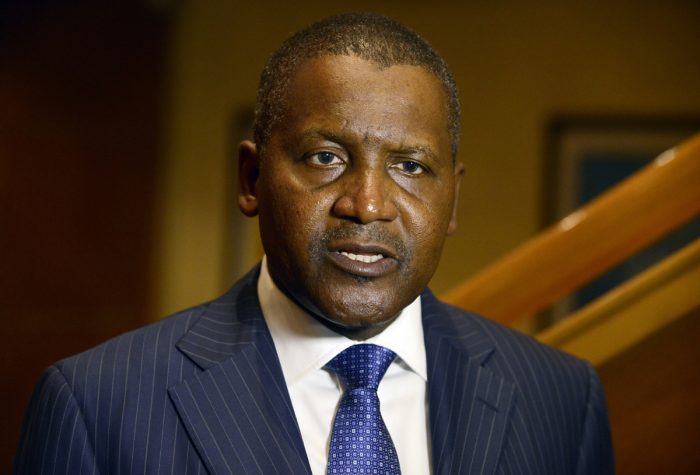JOHANNESBURG, South Africa, June 28, 2016/ — Following the UK’s surprise vote to leave the EU, EXX AFRICA (www.ExxAfrica.com) assesses the probable impact such a departure would have on African trade, investment, and security policy. In this free special report, EXX Africa analyses the impact of an eventual ‘Brexit’ on three of the UK’s most important African markets: South Africa, Nigeria, and Kenya.
Excerot of Report:
The main impact of a ‘Brexit’ on Nigeria would be further deterioration of the country’s already struggling economy, which has been caused by the fall in global oil prices and a steep drop in local crude production due to an insurgency in the Niger Delta. There is extensive trade and security cooperation between the UK and Nigeria that would be likely to face several years of disruption as the UK departs from the EU. Nigeria is the UK’s second-largest export market in Africa. Bilateral trade between the two countries is currently worth USD8.3 billion and projected to reach USD25 billion by 2020. The UK is also Nigeria’s largest source of foreign investment, with assets worth over USD1.4 billion. Moreover, UK-Nigerian remittances account for USD21 billion a year. The UK is also one of the largest development assistance donors to Nigeria, although Nigeria is not as aid-dependent as most continental counterparts.
A slowing UK economy on the back of a departure from the EU and potential disruption as the UK renegotiates its trade agreements, would be likely to reduce trade flows, foreign direct investment, and Nigerian remittances. There is also no guarantee that other EU countries will make up the UK shortfall in trade and investment, as other EU countries look to Iran for more reliable access to oil and to Asia for cheaper labour. On 24 June, Nigerian stocks ended a three-day rally, falling 1.4% over worries of Britain’s vote to leave the EU. Nigerian banks, such as Fidelity Bank and Zenith Bank, recorded the biggest losses. Nigerian stocks had previously rallied 8.5% after the government floated the naira and ended a highly controversial currency peg.
As a result, new portfolio inflows will slow, which will hamper the implementation of the country’s new foreign exchange mechanism. On 20 June, the central bank introduced a more flexible foreign currency policy, removing a de facto peg of around 197 naira to the US dollar. The naira’s 16-month peg to the dollar had overvalued the Nigerian currency, resulted in an economic contraction, and harmed investments. The implementation of the fuel sector liberalisation, including the termination of a burdensome state-subsidy scheme, would be likely to face implementation issues. The sector’s liberalisation will add to fuel importers’ margins and will allow shipments of fuel to resume. The liberalisation of the fuel marketing sector and the proposed introduction of a flexible exchange rate are both aimed at soothing foreign investor concerns and to attract new fundraising to finance a record budget deficit widened by a fall in oil revenues. The effective implementation of the new currency regime and establishing its credibility will be key to attracting new foreign direct investment and portfolio flows. Finance Minister Kemi Adeosun is due launch a planned eurobond sale later in 2016. The government plans to raise USD10 billion of new debt of which USD5 billion would come from foreign investors. Much of this planning would be delayed as risk averse investors steer away from Nigerian debt.
Beyond trade and investment, the UK is also a key partner in Nigerian security. The UK has been crucial to drawing international attention to the Islamist Boko Haram insurgency in Nigeria’s northeast. There is a risk that the UK would become distracted from international security threats, such as those by Boko Haram, as it negotiates its departure from the EU. However, the US and France have proven more crucial partners than the UK in combating Boko Haram, thus mitigating the effect on counter-insurgency efforts.
EXX AFRICA is a specialist intelligence company that delivers accurate, decision-ready, and commercially relevant forecasts on African political and economic risk to businesses. We embrace the continent’s fast changing dynamics and serve our wide-ranging client base to mitigate their risk exposure to Africa’s fast-changing political and economic developments.
We pride ourselves on providing timely, reliable, and well-informed intelligence that is sourced from our extensive on-the-ground network and then rigorously applied to our analytical processes. We prepare our clients to enter new markets in Africa, to recognize and engage senior stakeholders, to identify key threats and opportunities, to monitor indicators of risk, to assess their socio-economic impact, and to manage expectations and meet local requirements.
We believe that the value of intelligence is in its factor of surprise, so we endeavor to always tell our clients something new and striking. We are based in Johannesburg and London, with a network of trusted analysts and dedicated sources across the African continent and beyond.
Find the Report here: http://bit.ly/2920AvC



Leave a Reply